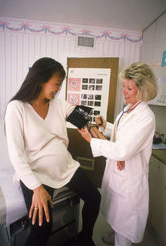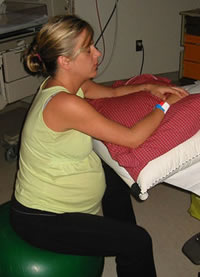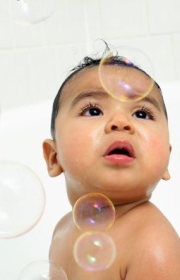 In today’s world of modern times and modern living, a normal blood pressure for an average American is considered to be 120/80. If your blood pressure returns a figure such as this, then you are generally in good health.
Hypotension refers to abnormally low blood pressure, and a reading even as little as 20mmHg below normal can result in hypotension.
Of course there are many people in the world who suffer from Hypotension, also known as Low Blood Pressure, and they lead normal healthy lives. There are of course others who suffer terribly from the symptoms of hypotension. It is important that you are aware of these symptoms, as hypotension can deprive your brain of the oxygen it needs in order to keep you alive.
In today’s world of modern times and modern living, a normal blood pressure for an average American is considered to be 120/80. If your blood pressure returns a figure such as this, then you are generally in good health.
Hypotension refers to abnormally low blood pressure, and a reading even as little as 20mmHg below normal can result in hypotension.
Of course there are many people in the world who suffer from Hypotension, also known as Low Blood Pressure, and they lead normal healthy lives. There are of course others who suffer terribly from the symptoms of hypotension. It is important that you are aware of these symptoms, as hypotension can deprive your brain of the oxygen it needs in order to keep you alive.
Common signs and symptoms of Hypotension
Low blood pressure may not always be a bad thing. Some people who may be in the peak of physical fitness may enjoy having a low risk of suffering from a heart attack. For others though, it is not a condition to be happy about, especially if any of the following symptoms is experienced:- Dizziness or light-headedness
- Fainting
- Irregular heartbeat
- Stiff neck
- Burning and foul smelling urine
- Low concentration
- Blurred vision
- Nausea
- Cold, clammy, pale skin
- Rapid or shallow breathing
- Fatigue
- Depression
- Thirst
What can cause Hypotension?
Suffering from low blood pressure during your pregnancy may be common, but that doesn’t mean that being pregnant is the only cause of your low blood pressure. There are other factors which may be the cause, and they will need to be ruled out, so that your healthcare provider can be sure that there is no additional danger to you or your baby. Other possible causes of low blood pressure include:- Heart problems Bradycardia, a condition which is caused as a result of extremely low heart rate and problems with the valves of the heart may all cause your blood pressure to be low, and could possibly lead to heart failure, even when you are not pregnant.
- Endocrine problems Generally caused by either an underactive or overactive thyroid, adrenal insufficiency low blood sugar and in some cases, diabetes. As you can image any of these complications during your pregnancy will need to be dealt with efficiently.
Treating Hypotension
If your healthcare provider is concerned about your low blood pressure, or an underlying factor which has been discovered, then there is a treatment. The kind of treatment which is recommended depends on what the cause for the hypotension is, your age and your fitness level. Some of the common methods of treatment are as follows:- Increased salt intake This is usually recommended for those who simply need to increase there blood pressure. However this is not as simple as adding a teaspoon of salt to your diet either, as too much salt can cause you to have high blood pressure. If your healthcare provider recommends this as treatment, then he or she will also give you’re the correct directions on how to go about this method.
- Increased water intake Of course drinking water is good for you, especially during your pregnancy. Quite simply, fluids increase blood volume, as well as prevent dehydration.
- Medication Of course there is always medication to treat the more serious cases. Midodrine is the drug of choice to help raise your blood pressure. However this is a complicated subject, as it also has side effects which your healthcare provider will be aware of.
- Read our article on Hypertension – which is high blood pressure – during your pregnancy.
Hypotension



